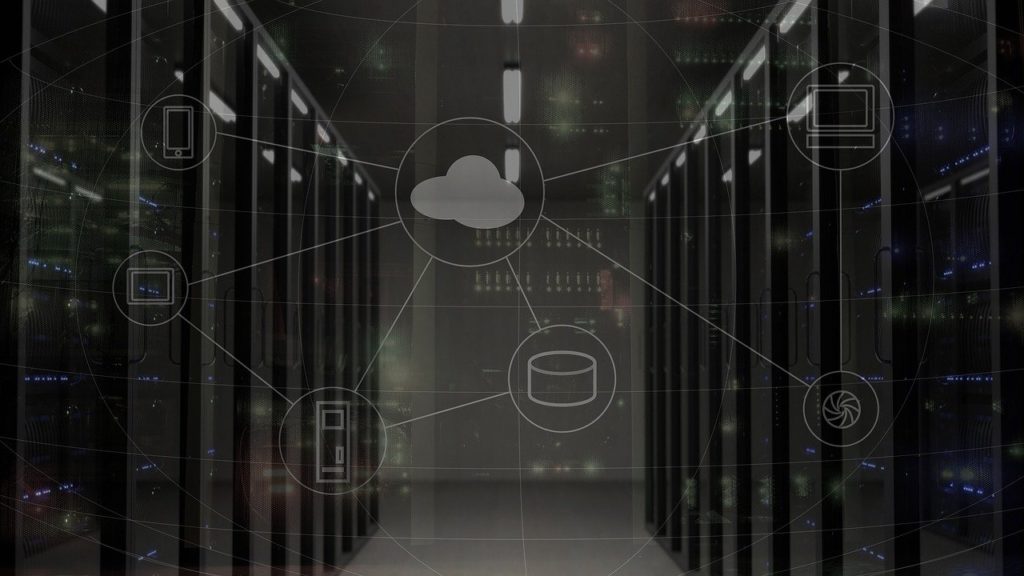30/07/2020
read
Is the Cloud Safe?

We are all using the cloud more and more in our daily and working lives; from storing files in Dropbox and Google Drive to using Microsoft 365. There are, however, still some fears about the security of using cloud software. However, like most things with IT, the systems you use are as secure as you enable them to be. If you have no security measures in place, then your personal data, business data and client data are at risk, but this risk is reduced with every extra layer of security you implement.
What is Cloud Security?
Cloud security is anything that can help protect your data from cyber-attacks from external or internal sources.
To ensure you have secure cloud systems can start at a very basic level with passwords and multi-factor authentication, ensuring access is only provided to authorised people, to ensuring all anti-virus and anti-malware software is kept up to date.
Which is more secure, public cloud, or private cloud?
When using cloud applications you can choose between using the public or private cloud, both of which have pros and cons. The public cloud offers services such as Google Drive, Microsoft Azure or Dropbox, over the public internet, which are available to anyone who signs up to them.
The private cloud has similar capabilities but is delivered via the internet or a private internal network. The private cloud by its very nature is more secure as the access parameters are bespoke and can include not only who has access but can also transmit data by private internal networks which limits the connection to external cybersecurity threats.
Top Tip: For further details of the pros and cons of the private and public cloud, please read our blog: Private cloud vs Public cloud.
Depending on your companies’ requirements determines whether the public or private cloud is ideal for you.
For example, if you deal with highly sensitive data, the private cloud offers an extra layer of security whereas if you have a growing small business, cost and speed may be more of a priority, in which case, the public cloud is suitable.
The public cloud is generally cheaper as everything is maintained and managed by the third-party cloud app supplier, whereas the private cloud generally requires a specialist IT team (in-house or outsourced) to set up and maintain.
If you are uncertain about which would be preferable for your business, contact the team at CIS.
Is Cloud Storage Private?
The level of privacy within a cloud app depends on the specific service, as well as the levels of security that you or your organisation have put into place.
In order to ensure data remains private requires a good security culture within your organisation with complex passwords and regular cybersecurity training. With a rigorous security policy in place, followed by all staff your cloud-hosted data should be kept safe and private.
How secure is data stored on the cloud?
Naturally, having your data stored on third-party servers does present some security concerns but with the right tools and techniques in place, this doesn’t need to be a major concern for your business. For example, the cloud managed services offered by CIS have additionally built-in security ensuring your data is not threatened by external cyber threats.
For most companies, built-in security, coupled with specific logins is secure enough, meaning public cloud hosting is sufficient. However, the further measure of encrypting data ensures that even if the systems are hacked the data itself will be protected. Much of the cloud-based software available automatically encrypts your data, but there is no harm in adding another layer of encryption at a local level.
This can be done through password-protecting documents or encrypting the file before they are saved to the cloud.
Encrypting data means the file cannot be read until the decryption code is entered by the recipient. So, even if unauthorised people (internally or externally) gain access to the file, without the decryption code they will be unable to read it.
It is also possible to use authenticated encryption which stores the metadata of a file, meaning the user is able to see if the file has been modified since it was saved to the cloud, and therefore adds another layer of security.
To find out how CIS can help with encryption of your data, contact us today.
Security threats are also greatly reduced by using private cloud hosting rather than the public cloud. The private cloud is where the computing resources are accessed by one company working on a private network. Then to further reduce the threats from internal sources, it is possible to set up specific access to individuals, meaning your IT team (outsourced or internal) controls who accesses specific data.
It is also advisable to have multi-factor authentication for all logins, which requires registered users will be required to use a password plus a pin code, fingerprint or eye-dent to access the material.
What are the main risks of cloud computing?
If security measures are not put in the place there are risks in using cloud-based software.
These can include:
- Identity theft
- Compliance violations (e.g. GDPR)
- Malware or ransomware infections
- Loss of revenue
- Loss of customer trust
These are all preventable by installing:
- Firewalls
- Anti-virus, malware and ransomware software and keeping it up to date
- Multi-factor authentication
- Data encryption
- Secure logins
What next?
Should you want to discuss cloud hosting services, reach out to CIS today and discover our range of cybersecurity services, cloud solutions and IT support. See how we can help keep your data safe today.
How can we help?
Whether you have a project to discuss or just need some friendly advice, we'd be happy to help.
Get in touchKeep up to date
Join our mailing list and stay up to date with all the latest in the IT world